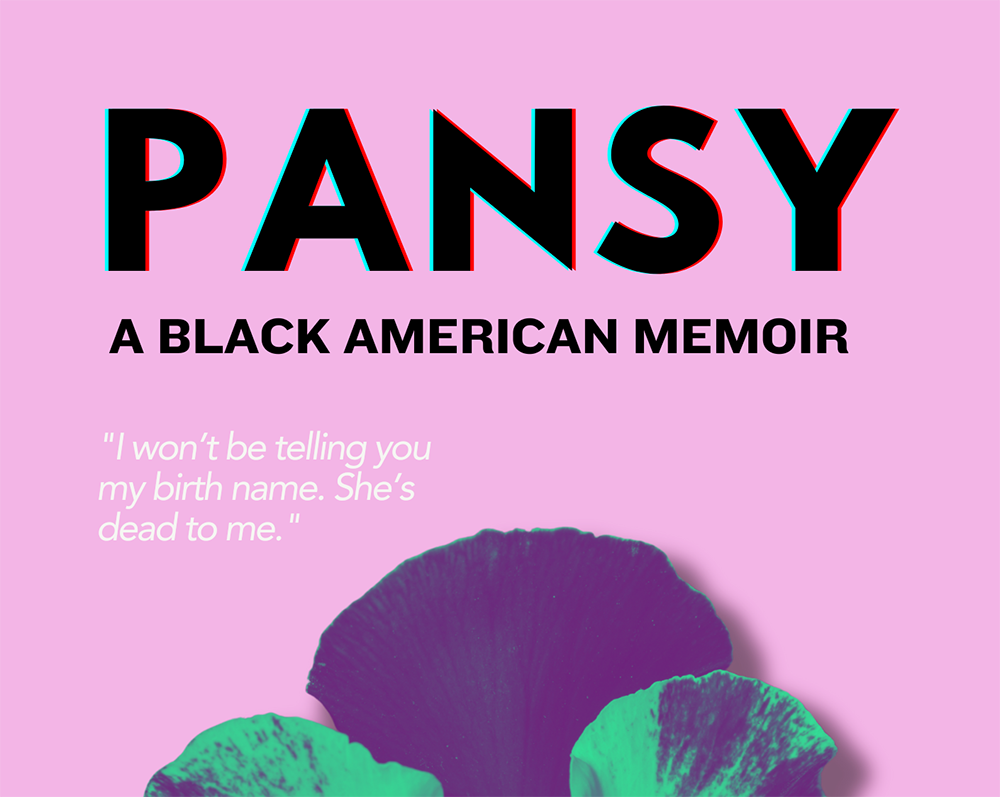Think of a pansy, the flower, pink or yellow, blue or deep purple, marked with sharply defined pigmentation or a soft blending of hues on the petals that fold over each other in layers.
That’s how Jasper Joyner pictures their identity as a nonbinary transmasc writer. It’s masculine and feminine, soft yet hardy, layered. It’s why Joyner titled their memoir, Pansy: A Black American Memoir, which was released on October 22nd.
Of course, pansy has another connotation, used to derogatorily describe gay men. But Joyner says, “I thought of that. I’ve been calling myself a pansy for 15 years. That’s not why I chose it [as a title], but I’m trying to reclaim that word.”
Joyner, now 34, set out to write a memoir some four years ago after reading Zami: A New Spelling of My Name by Audre Lorde, who established a new genre called biomythography that combines history, biography, and myth into a narrative.
Joyner describes this style as a “mosaic” of “snapshots” of the author’s life. “I was really inspired to read more memoirs like it because it really made me start asking questions about myself,” they say.
It was almost like an obsession. They went on to read memoirs by Black queer writers, by Black Southern writers. They read Alice Walker and read “how she talked about how important it is for Black Southern writers to tell their stories.”
Joyner has always considered themself a writer, ever since childhood. They’ve written a young adult novel, Juniper Leaves, anda chapbook, A Flamboyance. They’re currently the managing editor for Focus Mid-South magazine.
Yet never did they intend to write a memoir. “After reading [so many though],” they say, “it was like it makes sense for me to add my story to this mosaic of stories because I didn’t see a lot of stories like mine with my similar experiences. … It’s worth it to go ahead and try to tell my story, not because it’s unique, but because it’s a human story that I think makes sense to share.”
“I feel like,” they add, “my particular experience with transness shows you that it’s much muddier than a lot of the ways transness is defined now because, in my belief, I never transitioned. I’ve always been this person, and I think everyone is constantly becoming more of themselves. … We can all see ourselves in that nuance.”
Told in nonlinear episodic snapshots in the biomythographic style of Audrea Lorde, Joyner’s memoir explores their Memphis upbringing in the ’90s, their time at Vanderbilt, finding themself in New York City, and more.
There are moments of intense vulnerability. “There’s a chapter in there where I talk about suicidal ideation that I almost wasn’t going to include, but transmasc folks in LGBTQ communities have the highest rate of suicidal ideation. You never really hear about it.”
But there are moments where Joyner holds back or leans into poetic truths and mythmaking. “I didn’t want this to be a story about a trans person who’s struggling. I wanted it to be a human story that people can relate to,” they say. “I didn’t want to accidentally exploit myself by focusing too much on any one of my identities.”
After all, this book was and is about more than themself. Joyner says that at only 34, many in the LGBTQ community would consider them a trans elder. “It’s a devastating fact, but at the same time, there are so many young trans folks who look at me and see, like, oh, you still exist. You’re still surviving, you’re thriving, and for a lot of young trans people, they don’t want to wait to see what that could look like.”
Joyner sees this firsthand in mentoring 20-something-year-olds in creative spaces and through the Sam & Devorah Foundation for Trans Youth.
That’s why Joyner didn’t wait until they were older to write their memoir, but it’s also why they took so much care with it. The book went though eight or so drafts with several readers’ feedback — an approach they hadn’t taken before with their published work. “I write work like Pansy for them and also my younger self,” Joyner says.
Jasper Joyner’s Pansy can be purchased at DeMoir Books & Things and other independent bookstores as well as online. Pansy was named one of BookLife’s Best of 2024 by Publishers Weekly.
